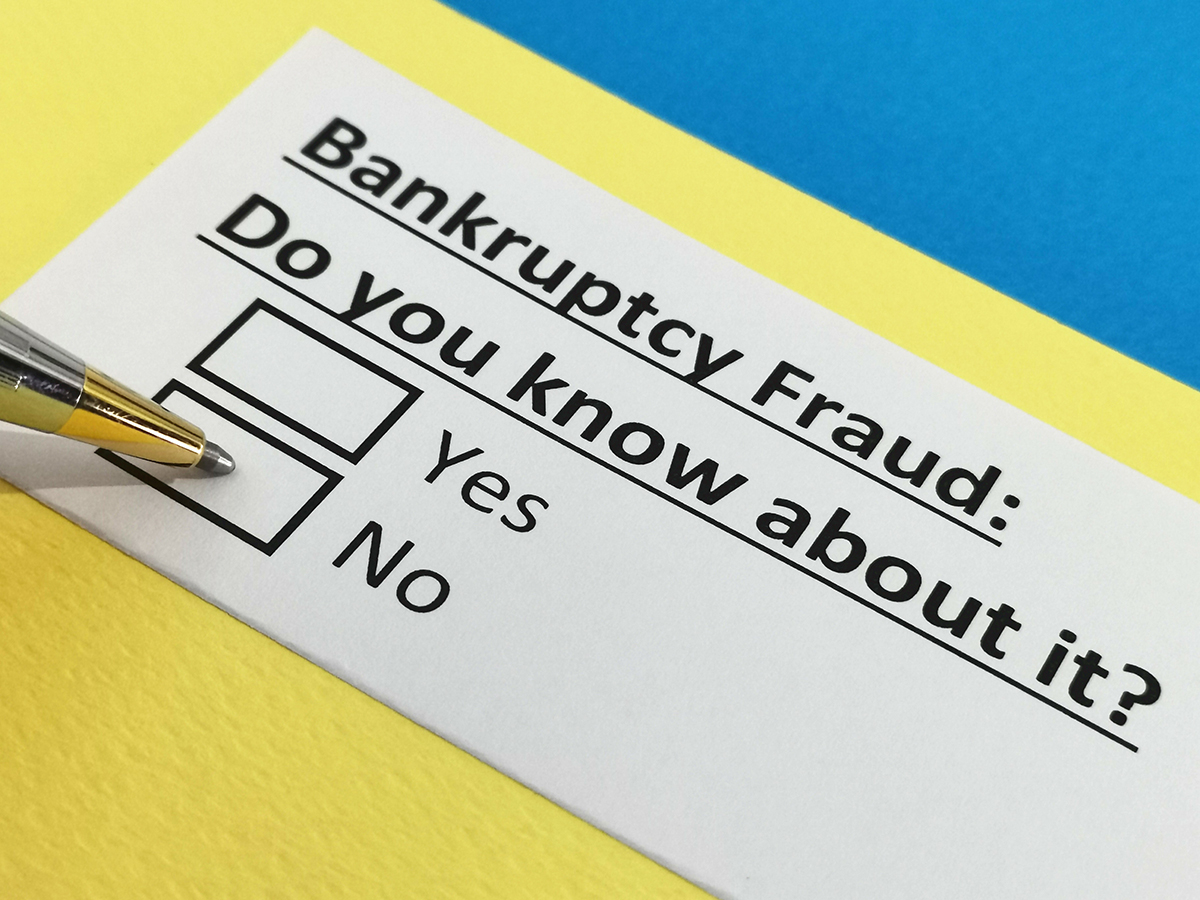Is it Fraud? How to Determine Bankruptcy Fraud

Is it Fraud? How to Determine Bankruptcy Fraud
A discharge order is the holy grail of bankruptcy. It marks the elimination of certain outstanding debts, giving debtors a fresh economic start while prohibiting creditors from legally undertaking or continuing any debt collection activity against them.
There are, however, specific categories of debt known as “exceptions” that do not qualify for a discharge. Section 523 of the Bankruptcy Code describes certain debts as non-dischargeable, meaning the debts remain due and owing after discharge. Some common exceptions include most tax obligations, student loans, domestic support obligations, and debts arising from fraud or misrepresentation.
While most exceptions are non-dischargeable regardless of whether the issue arises during the bankruptcy case, some, like fraud, must be affirmatively raised during the bankruptcy case. The trustee or a creditor must file a motion or, in most cases, an adversary proceeding requesting the court determine if a debt is dischargeable. Unless a possibly fraudulently obtained debt is brought to the court’s attention this way, it will be discharged. Thus, the trustee or creditor must think long and hard to determine if the time, effort and cost are worth it.
Fraud in Bankruptcy
Bankruptcy fraud may take several forms, including;
- a debtor concealing assets to avoid forfeiting them in bankruptcy, including maxing out their credit card on luxurious purchases shortly before filing for bankruptcy;
- an individual intentionally filing false or incomplete bankruptcy forms;
- a debtor filing multiple times using false information or in different jurisdictions
- an individual bribing a court-appointed trustee; and
- a debtor engaging in criminal activities like money laundering, identity theft, and public corruption.
Proving a Fraud Exception in a Bankruptcy Case
As with other civil cases, the burden of proof in an adversary proceeding involving a fraud exception is on the plaintiff/creditor. 11 U.S.C. Section 523(a)(2)(A) provides the elements that a plaintiff needs to establish or prove in their claim of non-dischargeability arising from fraud. The elements that the creditor needs to show include:
- the defendant/debtor made a representation;
- with the knowledge that the representation at the time of making was false;
- the debtor made the representation deliberately to deceive the plaintiff/creditor; and
- the creditor relied on the representation; which
- proximately caused the damage.
Section 523(a)(2)(B) of the Bankruptcy Code, the other commonly invoked fraud exception section, has separate but similar elements. Accordingly, proving fraud is often complicated, especially elements such as fraudulent omission, intent, reliance, and causation.
- Fraudulent omission – occurs when a debtor deliberately and with an intent to deceive fails in their duty to disclose material facts as outlined under Section 523(a)(2)(A). The burden of proving fraudulent omission is on the creditor.
- Intent – Section 523(a)(2)(A) requires a creditor to show actual intent, and not just implied or constructive intent, on the part of the debtor in a bankruptcy proceeding.
- Reliance – when claiming a fraud exception, the plaintiff/creditor must show that they justifiably relied on the debtor’s fraudulent activities in obtaining money, property, or services.
- Causation – the plaintiff/creditor must also prove that the debtor’s fraudulent activities proximately caused damage to the creditor.
Conclusion
With many non-dischargeable debts involving an element of intentional wrongdoing, proving a fraud exception is often difficult. Typically, establishing ‘moral turpitude’ in bankruptcy can be challenging despite existing public policies. Whether you are a creditor seeking a fraud exception or a debtor seeking a fresh economic start through bankruptcy, it is advisable to seek the help of a skilled bankruptcy lawyer.
For more information on Bankruptcy Law, visit here.



